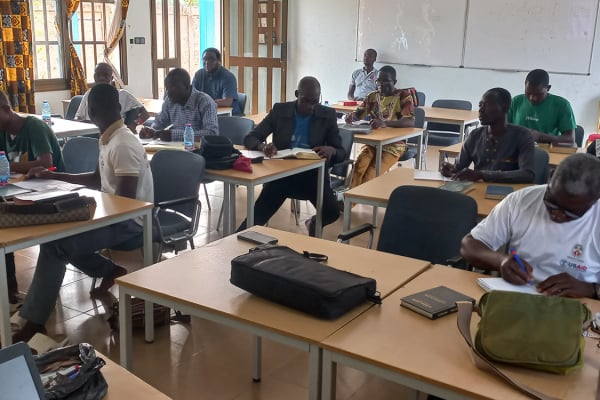
August 9, 2012
“Missionary” in the 21st Century
Read the series: Part 1 | Part 2 | Part 3
In this final article in this series, Larry Sharp suggests better ways to express Jesus’ mandate to make disciples. While abandoning this much-endeared word missionary may at first seem radical, the enormous global and ecclesiastical changes in the past generation require rethinking our witness and the way we communicate the timeless message of the gospel.
In this final article in this series, Larry Sharp suggests better ways to express Jesus’ mandate to make disciples. While abandoning this much-endeared word missionary may at first seem radical, the enormous global and ecclesiastical changes in the past generation require rethinking our witness and the way we communicate the timeless message of the gospel.
Who Is a Missionary?
by Larry Sharp, Crossworld Vice President Emeritus
We know that first-century Christians did not call themselves missionaries. They did call themselves Christians, and of course that is biblically legitimate. But in today’s world that also may be an ambiguous term that can either fail to distinguish us from nominal “Christians” or can lump us together with such “Christians” as 20thcentury Nazis or Crusaders of hundreds of years ago.
To introduce my suggestion of better terminology, let’s start with a story.
Crossworld Canada President Jim Beerley began experimenting during some conversations with strangers in regard to the inevitable question, “What do you do?”
When he answered, “I am a missionary with Crossworld and I work in Europe,” the conversation pretty much ended. But when he answered, “I work for an organization that brings personal and community transformation…” the door opened for continued (and much deeper) dialogue.
In Part 2 of this series, I explained why the word missionary can inhibit credibility, integrity and authenticity in today’s world and, in fact, may hinder the very relationships we’re trying to build. Our identity should be expressed in terms that people can identify with and that will foster relationships. So how can we distinguish ourselves?
Jim’s story above illustrates one alternative. Below are some other suggestions.
To introduce my suggestion of better terminology, let’s start with a story.
Crossworld Canada President Jim Beerley began experimenting during some conversations with strangers in regard to the inevitable question, “What do you do?”
When he answered, “I am a missionary with Crossworld and I work in Europe,” the conversation pretty much ended. But when he answered, “I work for an organization that brings personal and community transformation…” the door opened for continued (and much deeper) dialogue.
In Part 2 of this series, I explained why the word missionary can inhibit credibility, integrity and authenticity in today’s world and, in fact, may hinder the very relationships we’re trying to build. Our identity should be expressed in terms that people can identify with and that will foster relationships. So how can we distinguish ourselves?
Jim’s story above illustrates one alternative. Below are some other suggestions.
- I am a disciple of Jesus and want to share with others the good news about Him.
- I am a professional (businessman, engineer, teacher, health care worker, etc.) who loves Jesus and seeks to follow Him.
- I have a relationship with God that is vital and real, and I want others to have one also.
- I am a witness to the grace of God that changed me and can change you too.
- I have been transformed by Jesus and seek to help others follow Him too.
- Regarding the context of the church or mission organization, combinations of the following terms are often used: “international/overseas/cross-cultural/global” “worker/staff/partner.” E.g. “international staff” or “global partner”
More Articles
TOGO — A man prayed for 38 years for the church to come to his village.
August 6, 2025
CANADA — A routine maintenance visit leads to a search for eternal truth.
September 3, 2025
CENTRAL ASIA — A chemistry class assignment sparks questions of faith for Maya in Asia.
October 1, 2025
FRANCE — Lucie’s isolated faith turns to bold witness in her new community.
November 5, 2025
MEXICO — Andrew’s encounter at the doorstep served an entirely different purpose.
February 4, 2026
BRAZIL — A paraplegic woman comes to faith through a gospel necklace and helps others do the same.
January 7, 2026
WEST ASIA — A Christmas gift melted Liliya’s desire for revenge.
December 3, 2025
.png)

 By John Spadafora
By John Spadafora











